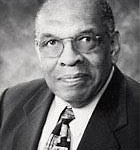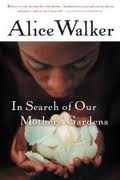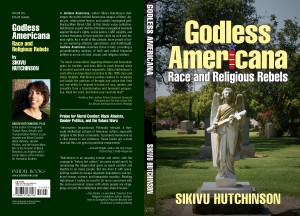|
Seven bills are moving through the legislature that will dramatically improve educational and life chances for California’s youth. Because of your support…
SB 458 – Senator Wright – which will require notification to youth and their families when they added to local or the statewide (CalGang) Database – is on its way to the Senate floor.
ACR 30 (Assembly Resolution) – Assemblyman V. M. Perez – which calls for the adoption by the state of a Youth and Student Bill of Rights, outlining human rights for all youth in education, justice, employment, health, housing and environmental protection – is on its way to the Assembly floor.
Please make calls today to move the other 5 bills out of Appropriations:
SB 260 – Senator Hancock – will enable youth who were transferred to adult court and sentenced to more than 10 years to petition to have their sentence reviewed for possible re-sentencing.
AB 549 – Assemblyman Jones-Sawyer – will require school districts to have a memorandum of understanding between school districts and police departments that operate in schools and requires school districts to define the role of law enforcement and other adults on campus. Encourages spending for counselors and intervention workers over additional school police and school resource officers.
SB 744 – Senator Lara – severely limits the use of involuntary transfers that force thousands of California youth every year onto the streets or into under-resourced community day and continuation schools.
SB 61 – Senator Yee – will severely limit the use of solitary confinement for youth in county and state custody. Solitary confinement has led to increases in suicide, PTSD, mental illness, violence and recidivism among youth.
AB 420 – Assemblyman Dickinson – eliminates the use of willful defiance as a reason for suspending students in elementary schools and minimizes the ability to suspend middle and high school students for that reason. In 2012, 56% of student suspensions in California were for willful defiance – a category that is vague, subjective and usually reflects minor disagreements between youth and staff.
For AB 549 and AB 420, call members of the CA Assembly Appropriations Committee and urge them to pass these bills through Appropriations and on to the full Assembly for a vote:
| Committee Members |
District |
Office & Contact Information |
| Mike Gatto (Chair) |
Dem – 43 |
Capitol Office
P.O. Box 942849, Room 2114, Sacramento, CA 94249-0043 (916) 319-2043
|
| Diane L. Harkey (Vice Chair) |
Rep – 73 |
Capitol Office
P.O. Box 942849, Room 6027, Sacramento, CA 94249-0073 (916) 319-2073
|
| Franklin E. Bigelow |
Rep – 05 |
Capitol Office
P.O. Box 942849, Room 4116, Sacramento, CA 94249-0005 (916) 319-2005
|
| Raul Bocanegra |
Dem – 39 |
Capitol Office
P.O. Box 942849, Room 4167, Sacramento, CA 94249-0039 (916) 319-2039
|
| Steven Bradford |
Dem – 62 |
Capitol Office
P.O. Box 942849, Room 5136, Sacramento, CA 94249-0062 (916) 319-2062
|
| Ian C. Calderon |
Dem – 57 |
Capitol Office
P.O. Box 942849, Room 5150, Sacramento, CA 94249-0057 (916) 319-2057
|
| Nora Campos |
Dem – 27 |
Capitol Office
P.O. Box 942849, Room 3013, Sacramento, CA 94249-0027 (916) 319-2027
|
| Tim Donnelly |
Rep – 33 |
Capitol Office
P.O. Box 942849, Room 2002, Sacramento, CA 94249-0033 (916) 319-2033
|
| Susan Talamantes Eggman |
Dem – 13 |
Capitol Office
P.O. Box 942849, Room 2003, Sacramento, CA 94249-0013 (916) 319-2013
|
| Jimmy Gomez |
Dem – 51 |
Capitol Office
P.O. Box 942849, Room 2176, Sacramento, CA 94249-0051 (916) 319-2051
|
| Isadore Hall, III |
Dem – 64 |
Capitol Office
P.O. Box 942849, Room 3123, Sacramento, CA 94249-0064 (916) 319-2064
|
| Chris R. Holden |
Dem – 41 |
Capitol Office
P.O. Box 942849, Room 5119, Sacramento, CA 94249-0041 (916) 319-2041
|
| Eric Linder |
Rep – 60 |
Capitol Office
P.O. Box 942849, Room 2016, Sacramento, CA 94249-0060 (916) 319-2060
|
| Richard Pan |
Dem – 09 |
Capitol Office
P.O. Box 942849, Room 6005, Sacramento, CA 94249-0009 (916) 319-2009
|
| Bill Quirk |
Dem – 20 |
Capitol Office
P.O. Box 942849, Room 2175, Sacramento, CA 94249-0020 (916) 319-2020
|
| Donald P. Wagner |
Rep – 68 |
Capitol Office
P.O. Box 942849, Room 2158, Sacramento, CA 94249-0068 (916) 319-2068
|
| Shirley N. Weber |
Dem – 79 |
Capitol Office
P.O. Box 942849, Room 5158, Sacramento, CA 94249-0079 (916) 319-2079
|
For SB 744, SB 260 and SB 61, call members of the CA Senate Appropriations Committee and urge them to pass these bills through Appropriations and on to the full Senate for a vote:
Capitol Office:
State Capitol, Room 3086 Sacramento, CA 95814 Phone: (916) 651-4037
Capitol Office: State Capitol, Room 3070 Sacramento, CA 95814 Phone: (916) 651-4001
Capitol Office: State Capitol, Room 5064 Sacramento, CA 95814 Phone: (916) 651-4013
Capitol Office: State Capitol, Room 5050 Sacramento, CA 95814 Phone: (916) 651-4033
Capitol Office: State Capitol, Room 4038 Sacramento, CA 95814 Phone: (916) 651-4020
Capitol Office: State Capitol, Room 205 Sacramento, CA 95814 Phone: (916) 651-4006 |






